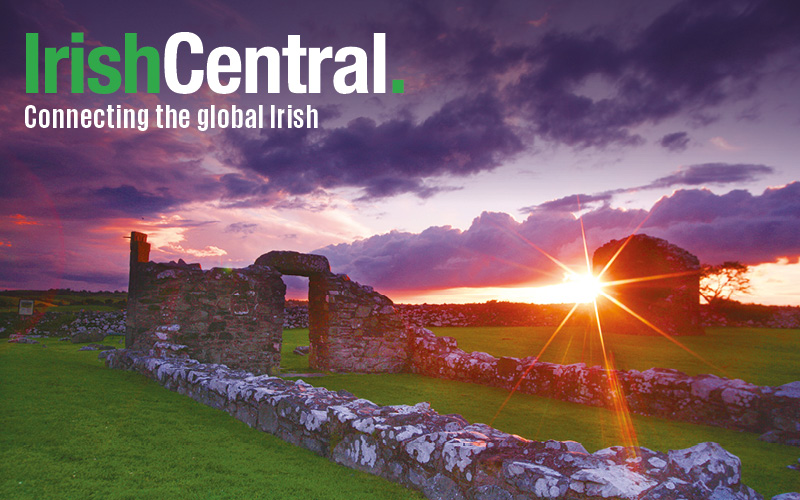This time of year, when the summer is fast drawing to a close and the Gaelic Athletic Association (GAA) finals are fast approaching, always transports me back to the Galway I landed into in early September of 2001. The city and county were in the throes of euphoria, excitement and, putting it honestly, pandemonium.
The two county teams in the premier sports of the GAA, football and hurling, had both advanced to the All-Ireland Final. Reaching the final is the “holy grail” for all counties at the start of every year’s championship.
I was somewhat bewildered at the incredible buzz generated by two games I had seen and knew vaguely growing up in Irish Boston, but soon threw myself into the spirit of things. The Galway hurlers, who had been hot favourites, were defeated in the final, while the Galway footballers, who many anticipated would lose, took their second championship in three years.
It wasn’t until some months later, however, that I can say I really discovered the GAA. And I haven’t looked back since. On a weekend visit to my cousins who still live on the site of my ancestral home in north Co. Galway – about halfway between the towns of Tuam and Dunmore for those who know the territory – my cousin Paddy Murphy announced that I was going with him to see the local GAA club, Cortoon Shamrocks, take on a rival Co. Galway club in a senior football match.
Paddy was then involved in management with Cortoon and thought it was high time to “make a west of Ireland man out of me.”
On a typical rainy and windy night in the west, we made our way through what Leo Moran of the Saw Doctors famously dubbed “the twisting, turning, winding roads of Galway and Mayo” to an isolated football pitch.
We were early; it was raining; it was the middle of nowhere; no one was there; and I wondered almost out loud to myself: “What the hell am I doing here?” Yet one car pulled up, and then another and soon the narrow country road became all but impassable with parked cars.
________________
Read More:
Public enraged by GAA coma footballer’s attacker’s 96-day ban
Emigration hits the GAA hard
GAA not informed about abuse accusations against priest in management
________________
The two teams started to warm up and soon the match began. Unsurprisingly for the night that was in it, the game was at times slow and tedious, but there were flashes of brilliance as well. Points were kicked through the wind and rain and “over the bar” by forwards from distances and at angles I didn’t think possible. There was great defending by the backs and a number of goal attempts were thwarted by extremely athletic keepers.
I can’t actually remember who won the match that evening, but I’ll always remember the passion, commitment and sporting camaraderie of the players and onlookers. I also remember the non-stop talk about football in the pub after the match, with mini-explosions of temper and howls of laughter featuring in almost equal, sustained volume.
What later struck me was that this club football match in the rural west of Ireland had reignited a sense in me of what sport is, or at least should be, about. At the match, and at every one I’ve been to since, the love of the game, the loyalty to one’s home and a shared spirit of community were manifest.
Somewhere along the way, I had lost this sense. As a childhood sports fanatic, my moods were typically linked directly to the fortunes of the Boston professional sports teams and the Boston College football and basketball teams.
Over the years, maybe owing to so much heartache and precious little success, my fanaticism subsided. There was more to my growing detachment, however, than the torture inflicted on my soul by the Boston Red Sox (prior to 2004 that is!).
Sport is meant to be fun. Sport is meant to be a game, not a business. It’s meant to be a positive influence on the lives of young people. But after years of reading of multi-million dollar contracts being awarded to grown men who could play boys’ games and whose off-field antics often revealed them to be little more than overgrown boys, I gradually morphed into a casual fan.
Why get excited about a new free agent a team has just signed when he is just as likely to move on as soon as he gets the chance to make more money? Why be so loyal to a team when the only thing that links most of its players to a city is the jersey they happen to be wearing?
Why watch a game when, whether due to the luck of extraordinary genes, the drudgery of a life of constant training to the exclusion of all else, the use of performance enhancing drugs or a mixture of all three, there is scarcely a player the average fan can truly identify with?
Dedicated fans of professional sports in the United States and of English Premiership soccer can certainly articulate reasoned responses to each of these three questions. Yet each remains.
The sports fan in me came back to life that night in Galway. Here were athletes who train regularly and commute long distances to do so in many cases, perform at a very high level and don’t get paid a cent.
They, and male and female participants just like them around the country, are teachers, lawyers, tradesmen and women, doctors, nurses, engineers, Gardaí (policemen and policewomen), publicans. The GAA is their avocation and they play for love, not money.
This is not to say that the GAA is perfect. The players, management and supporters are not always sportsmanlike. There is a creeping sense of professionalism, which is perhaps understandable given the extraordinary sacrifices made by players with no immediately tangible financial benefit. County boards and management increasingly take a business-like approach to their decision making processes.
As for the games themselves, incessant tweaking of the rules and a stubborn refusal to employ technology as a bulwark against referees’ capacity for human error sometimes make a mess of things.
These faults notwithstanding, the GAA remains an institution that unwaveringly and unapologetically seeks to preserve the highest ideals of sport at the highest level of competitive play. That’s why I love it.
I am still a committed Boston sports fan and make an effort to watch my home teams and keep up with developments from afar. But on Sundays from June through the third week in September – in Monroe’s in Galway, McGann’s in Boston, Flanagan’s outside Washington, DC, Fitzpatrick’s in Wicklow or wherever in the world I find myself – I’ll more than likely be in the local GAA pub watching attentively, especially if Galway’s playing!
Larry Donnelly’s friends and relations in Galway wonder if he has imported his own “Boston Curse,” given the county’s many misfortunes since his arrival in 2001.




Comments